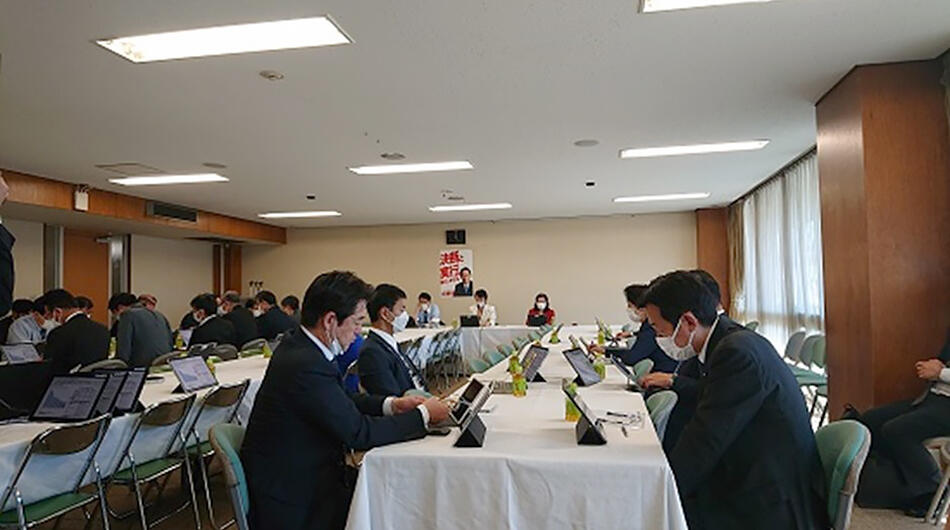Can Japan become a country that can utilize its doctoral human resources? In contrast to countries around the world that use such individuals to strengthen their competitive abilities, Japan is not able to use them efficiently in the public sector or in the private sector. The cause lies in Japan's characteristic customs, assumptions, and systems.
At the LDP's Research Commission on Science, Technology and Innovation Strategy, Haruko Arimura, a member of the House of Councillors, stated, "Japan will not change without the incorporation of initiatives to promote Ph.D. holders among our human resources. The national public officer system is a microcosm of social values. Each government ministry must visualize the recruitment, training and promotion of people who hold doctorates, and the government as a whole should introduce standards for the valuation of Ph.D. holders' expertise and ability to transform society."

In Japan, Ph.D. holders are not given important positions outside of academia, but in countries around the world, they are active in a variety of fields. The ratio of people who hold doctorates among corporate researchers is over 10% in Australia, Ireland, Norway, France and the United States, whereas it is as low as 4.49% in Japan. Moreover, in the United States, 14.1% of human resource directors in listed companies have a Ph.D. In Japan, 6.3% of corporate executives (more than 500 employees) finished graduate school, but this does not distinguish between those with a master's degree and those with a doctorate.
When Japanese bureaucrats work overseas, they find that many of their counterparts in partner countries and international organizations have doctoral or master's degrees, and in many cases, they cannot compete in expertise or strategy. Furthermore, UN management positions actually require qualifications of at least master's degree level, and a master's degree is also an application requirement for the Junior Professional Officer Programme in the Ministry of Foreign Affairs. Looking at the directors/presidents of 15 specialist UN institutions, including the International Fund for Agricultural Development (IFAD), five are Ph.D. holders and eight have master's degrees. Only two are so-called university graduates with an undergraduate degree (one of these is the only Japanese person).
In Japan, obtaining a doctorate is not a socially respected initiative when it comes to human resources. The reason for this likely lies in the national public officer system, which does not incorporate any initiatives to treat Ph.D. holders with respect. In the first place, becoming a scientific and technological power without valuing people with doctorates will be difficult.
In fact, people entering ministries after finishing their undergraduate degree (age 22+), finishing their master's degree (24+) and finishing their doctorate (27+) all have the same retirement age of 60, but the higher the person's education, the shorter their employment. The National Personnel Authority has not calculated the difference in their lifetime wages. Moreover, the current practice of lumping people with a master's degree and people with a doctoral degree together as "people who have finished graduate school" doesn't distinguish between/clarify the differences between the treatment of master's degree holders and Ph.D. holders. 90% of people in the "finished graduate school" category are master's degree holders. There is differentiation between university graduates and graduate school graduates when they join a ministry. The difference is such that the age gap is not a disadvantage, and the degree is not taken into account in later personnel affairs.
In Japan, there is an assumption that Ph.D. holders have too much expertise to be used, and that degree/master's degree holders are more marketable and easier to hire, which consequently lowers international competitive ability. On the condition that universities foster people with doctorates who can lead society and play active roles outside of academia, the government should work closely with businesses and introduce policies that offer tax breaks to industry if it proactively hires, promotes, and visualizes excellent doctoral personnel. The government should also consider identifying fields that anticipate an overwhelming shortage of people, and which are needed for the safety and prosperity of the nation, such as AI, quantum chemistry, digital technology, cutting-edge energy efficiency and autonomous driving and making doctoral courses that recruit for these fields free of charge.
When it comes to national public officers, the Cabinet Bureau of Personnel Affairs should take the lead in valuing the expertise of doctorate holders and their capacity for social transformation and establish initiatives that enable them to start in mid-level positions and, in certain cases, receive fast-track promotions. The government should also visualize the hiring, training, and promotion of Ph.D. holders by a government ministry, as well as establishing HR tracks that enable high-level talents with master's/doctoral degrees to continue to simultaneously attend international conferences and international institutions at which experts who represent their countries gather, even after personnel changes for one or two years, and fostering regulars in international fields that can appoint Japanese representatives for periods of 10 to 20 years.
This has led to the integration of the Tokyo Institute of Technology and Tokyo Medical and Dental University through the introduction of a standard - Universities of International Research Excellence - and the 10 trillion-yen fund that supports this. It is important to create a standard to value doctoral personnel. There is an expectation for lots of students to advance to doctoral courses. The Sixth Science, Technology, and Innovation Basic Plan states a desire to "advance the consideration of improving the treatment of doctoral graduates among national public officers based on their professional knowledge and research experience and come to a conclusion at an early stage." Sanae Takaichi, Minister of State for Science and Technology Policy, commented, "We are currently progressing with factual investigations. Based on the results of these and Councillor Arimura's proposals, we hope to ensure that more students advance to doctoral courses and play active roles in society by providing an environment that values people with doctorates."
This article has been translated by JST with permission from The Science News Ltd.(https://sci-news.co.jp/). Unauthorized reproduction of the article and photographs is prohibited.




